Hegel’s Dialectics


Hegel’s Dialectics
Dialectics drives to the “Absolute”,… which is the last, final, and completely all-encompassing or unconditioned concept or form in the relevant subject matter under discussion (logic, phenomenology, ethics/politics and so on). The “Absolute” concept or form is unconditioned because its definition or determination contains all the other concepts or forms that were developed earlier in the dialectical process for that subject matter…We can picture the Absolute Idea, for instance—which is the “Absolute” for logic—as an oval that is filled up with and surrounds numerous, embedded rings of smaller ovals and circles, which represent all of the earlier and less universal determinations from the logical development. [Fig. 1].
Since the “Absolute” concepts for each subject matter lead into one another, when they are taken together, they constitute Hegel’s entire philosophical system, which, as Hegel says, “presents itself therefore as a circle of circles”. We can picture the entire system like this [Fig. 2].
More Posts from Sigilheart and Others
The basic tenets of alchemy:
1. The universe has a divine origin. The cosmos is an emanation of One God. Therefore All is One.
2. Everything in the physical world exists by virtue of the Law of Polarity or Duality. Any idea can be defined in relation to its opposite, such as: male-female, light-dark, sun-moon, spirit-body, and so on.
3. Everything in the physical world is composed of Spirit, Soul, and Body: the Three Alchemic Principles. (In alchemy, these are called Mercury, Sulfur, and Salt.)
4. All alchemical work, whether practical laboratory work or spiritual alchemy, consists of three basic evolutionary processes: separation, purification, and recombination.
5. All matter is composed of four archetypal energies—the four elements of Fire (thermal energy), Water (liquid), Air (gas), and Earth (solid). The knowledge and skillful use of these four energy types is an essential part of alchemical work.
6. The Quintessence, or “Fifth essence,” is contained within the four elements but is not one of them. It is one of the three essential Principles, also called the Philosophic Mercury.
7. Everything moves toward its preordained state of perfection.
Israel Regardie, The Philosopher’s Stone: Spiritual Alchemy, Psychology, and Ritual Magic
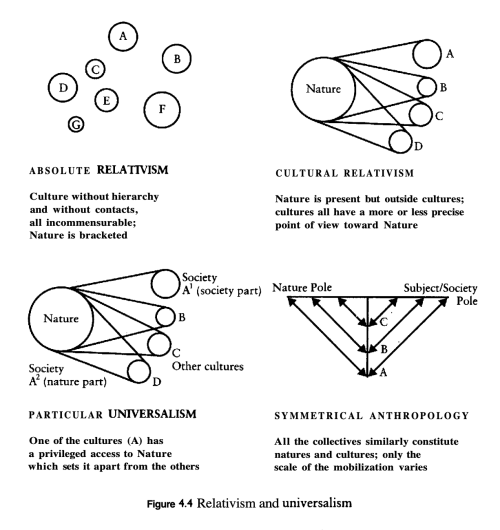
The very notion of culture is an artifact created by bracketing Nature off. Cultures — different or universal — do not exist, any more than Nature does. There are only natures-cultures, and these offer the only possible basis for comparison. As soon as we take practices of mediation as well as practices of purification into account, we discover that the moderns do not separate humans from nonhumans any more than the totally superimpose signs and things.
[…] Absolute relativism presupposes cultures that are separate and incommensurable and cannot be ordered in any hierarchy; there is no use talking about it, since it brackets off Nature. As for cultural relativism, which is more subtle, Nature comes into play, but in order to exist it does not presuppose any scientific work, any society, any construction, any mobilization, any network.
—Bruno Latour, We Have Never Been Modern
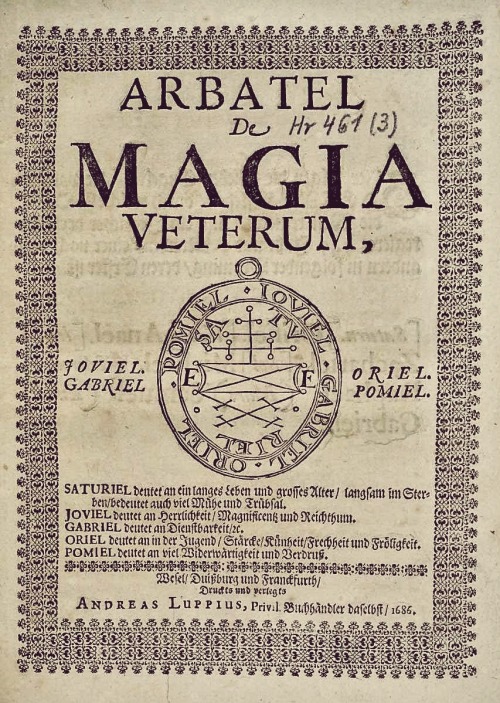
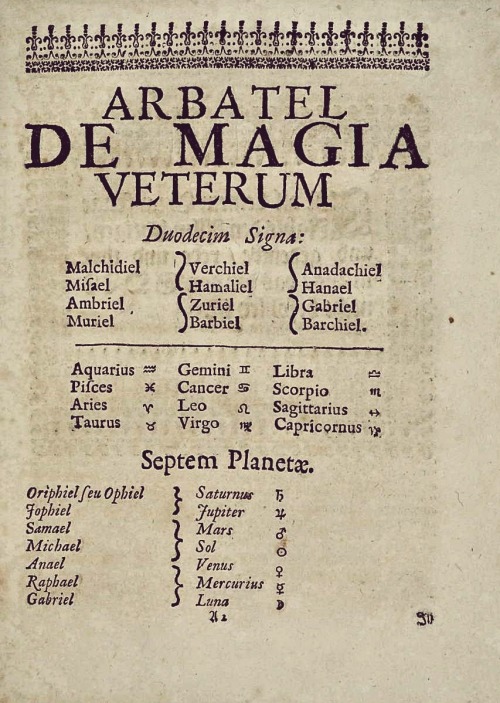

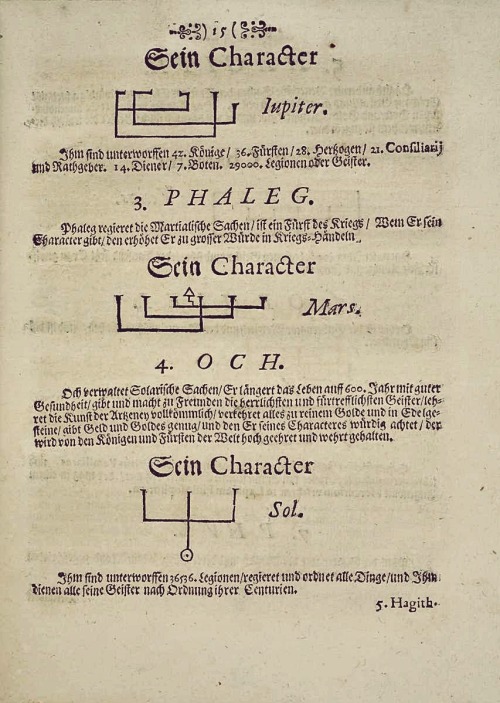
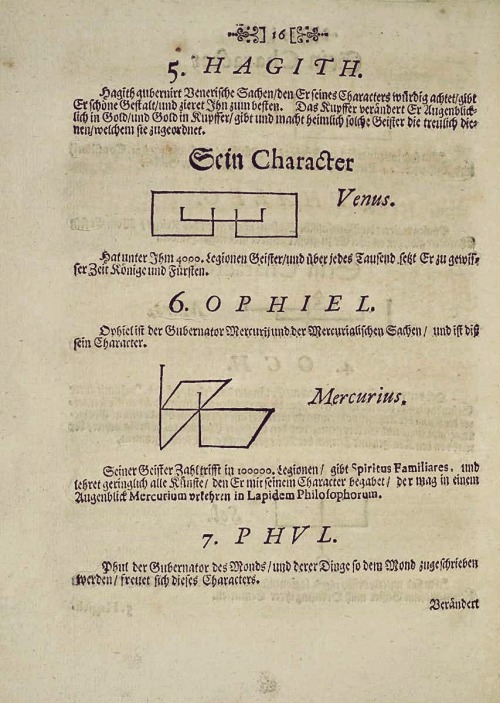
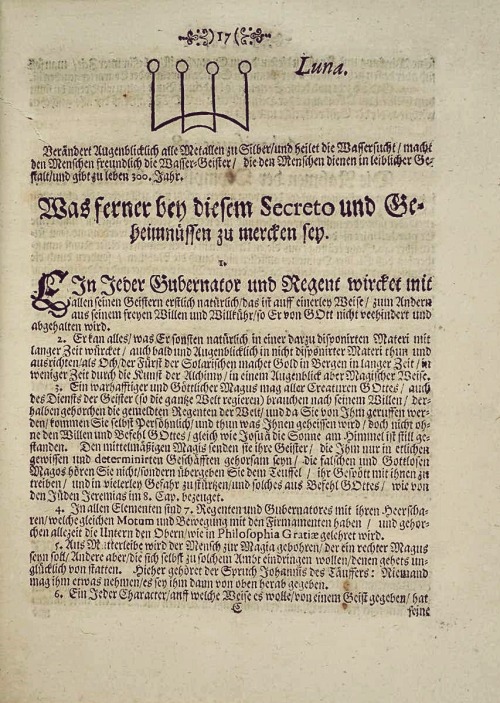
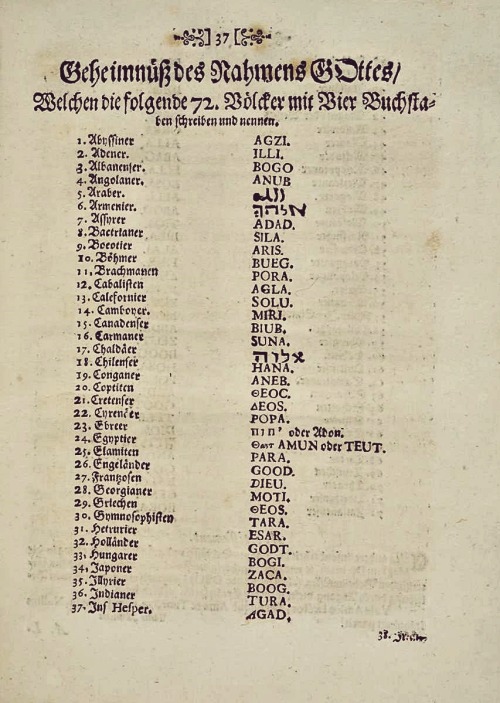
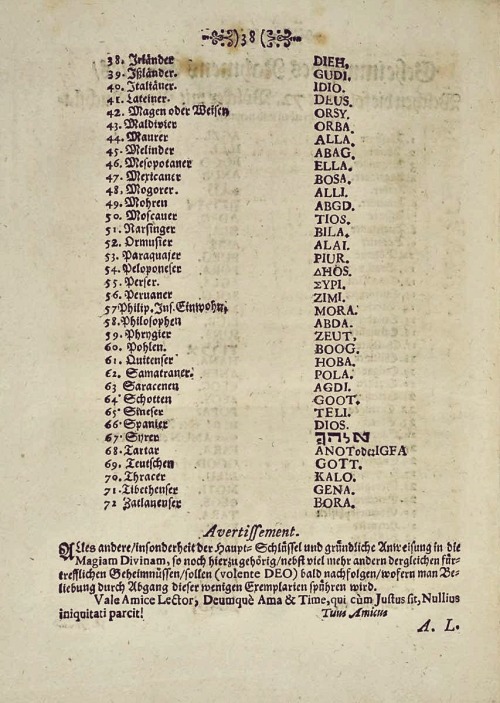
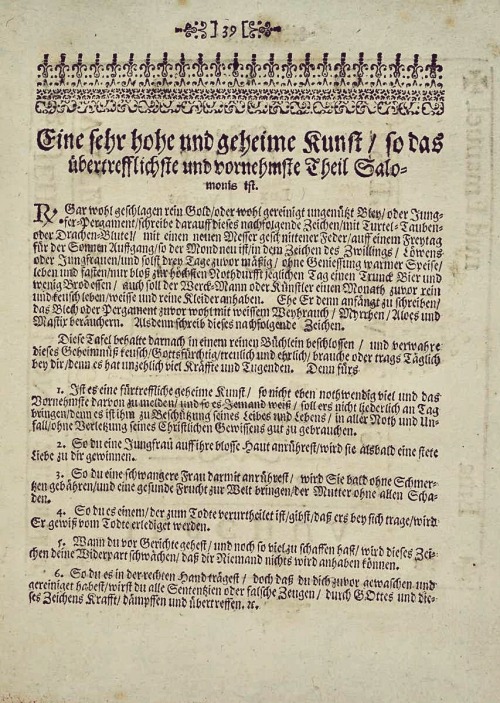
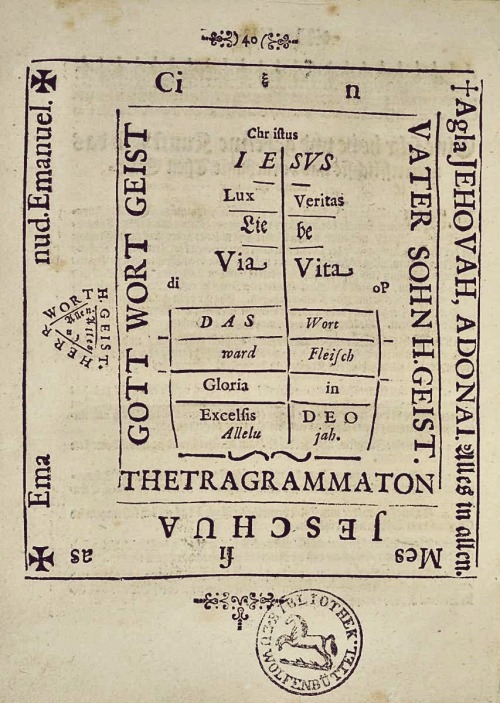
The Arbatel De Magia Veterum (Arbatel: On the Magic of the Ancients) is a grimoire of ceremonial magic that was published in 1575 in Switzerland. It was likely edited by Theodor Zwinger, and published by Pietro Perna. The actual author of the text remains unknown, but scholars suggest Jacques Gohory as a possible candidate.
The Arbatel mainly focuses on the relationship between humanity, celestial hierarchies, and the positive relationship between the two. The Olympian spirits featured in it are entirely unique to this grimoire. Unlike other grimoires, the Arbatel exhorts the magus to remain active in their community (instead of isolating themselves), favoring kindness, charity, and honesty over remote and obscure rituals. The teachings of Swiss alchemist Paracelsus greatly influenced the writing of this work, though it is also deeply rooted in classical culture, Ancient Greek philosophy, the Sibylline oracles and the philosophy of Plotinus.
Originally written in Latin, these selected ten pages come from a later German translation of the work, dated to 1686.

-
 sigilheart reblogged this · 2 months ago
sigilheart reblogged this · 2 months ago -
 occultvault reblogged this · 2 months ago
occultvault reblogged this · 2 months ago -
 wateryrealm liked this · 7 months ago
wateryrealm liked this · 7 months ago -
 ignotaignites liked this · 2 years ago
ignotaignites liked this · 2 years ago -
 reliquarygirl liked this · 3 years ago
reliquarygirl liked this · 3 years ago -
 edwordsmyth liked this · 3 years ago
edwordsmyth liked this · 3 years ago -
 tamatarkha liked this · 3 years ago
tamatarkha liked this · 3 years ago -
 d062119514 liked this · 3 years ago
d062119514 liked this · 3 years ago -
 yearofgrowth reblogged this · 3 years ago
yearofgrowth reblogged this · 3 years ago -
 1-am-a-g0d liked this · 3 years ago
1-am-a-g0d liked this · 3 years ago -
 dez82 liked this · 3 years ago
dez82 liked this · 3 years ago -
 kobithedragon liked this · 3 years ago
kobithedragon liked this · 3 years ago -
 darkcashspypalace liked this · 4 years ago
darkcashspypalace liked this · 4 years ago -
 exileddarkling liked this · 4 years ago
exileddarkling liked this · 4 years ago -
 hologram-evil liked this · 4 years ago
hologram-evil liked this · 4 years ago -
 theonlymeisyou7777 liked this · 4 years ago
theonlymeisyou7777 liked this · 4 years ago -
 notrimbaud liked this · 4 years ago
notrimbaud liked this · 4 years ago -
 dankaura reblogged this · 4 years ago
dankaura reblogged this · 4 years ago -
 dankaura liked this · 4 years ago
dankaura liked this · 4 years ago -
 cosmic--outlaw liked this · 4 years ago
cosmic--outlaw liked this · 4 years ago -
 occultvisions reblogged this · 4 years ago
occultvisions reblogged this · 4 years ago -
 tastelikethesky liked this · 4 years ago
tastelikethesky liked this · 4 years ago -
 oldbutcher liked this · 4 years ago
oldbutcher liked this · 4 years ago -
 sunlitparadox reblogged this · 4 years ago
sunlitparadox reblogged this · 4 years ago -
 roastfuck62 liked this · 4 years ago
roastfuck62 liked this · 4 years ago -
 fractaltesseract liked this · 4 years ago
fractaltesseract liked this · 4 years ago -
 tousjefais liked this · 4 years ago
tousjefais liked this · 4 years ago -
 faid liked this · 4 years ago
faid liked this · 4 years ago -
 coconutmaplefigandpaperclips liked this · 4 years ago
coconutmaplefigandpaperclips liked this · 4 years ago -
 xsadcorebenji liked this · 4 years ago
xsadcorebenji liked this · 4 years ago -
 abejarreina liked this · 4 years ago
abejarreina liked this · 4 years ago -
 apropernoun liked this · 4 years ago
apropernoun liked this · 4 years ago -
 shutupandquityourcrying liked this · 4 years ago
shutupandquityourcrying liked this · 4 years ago -
 shygarbage liked this · 4 years ago
shygarbage liked this · 4 years ago -
 funeral reblogged this · 4 years ago
funeral reblogged this · 4 years ago








